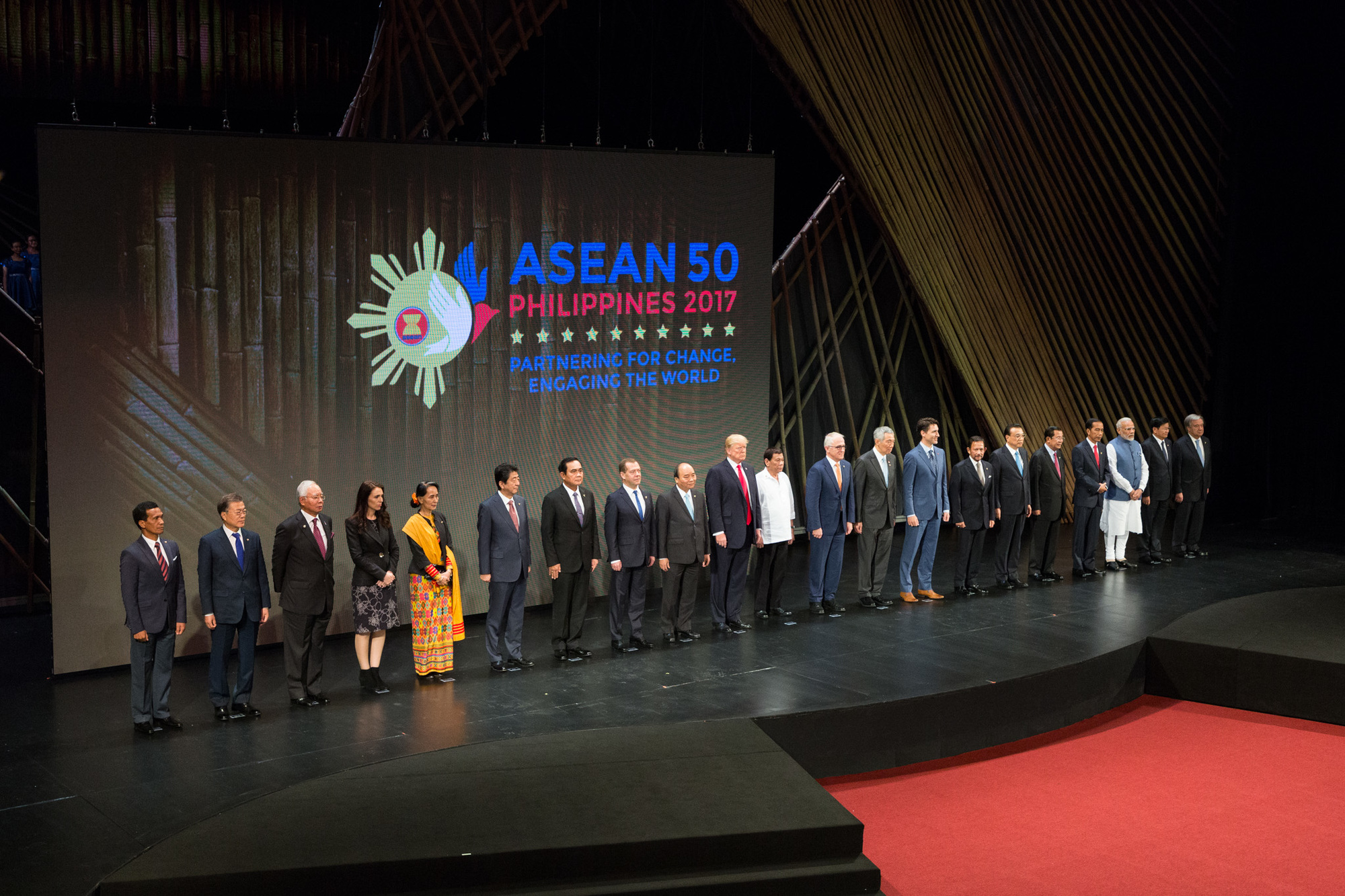
Australia and other regional nations must rely more heavily on ASEAN to reduce the dangerous tensions among an increasingly powerful China, Japan, Russia and the US, Labor’s foreign affairs spokeswoman, Penny Wong, has warned.
In
a major speech at the Lee Kuan Yew School of Public Policy in Singapore, Senator Wong said the Association of Southeast Asian Nations has blessed Australia with an unexpected but valuable political buffer. ‘With its diversity and heterogeneity, ASEAN has enhanced Australian security.’
If ASEAN were to dissolve, one of the biggest losers would be Australia, and if it were to do well, Australians would be among its biggest beneficiaries, she said. ‘ASEAN’, she noted, ‘is the lynchpin in Asia’s role in a globalised economic world, and has a growing role in the maintenance of the global economic system and the rules that support it.’
Senator Wong said the 10 nations of ASEAN bring a diversity of languages and cultures that the naysayers claim doom it to weakness and irrelevance. But that has made it a trusted and neutral political platform with a deep reservoir of support in Australia. ‘The most important contribution that ASEAN can make to the region’s stability and prosperity in contemporary circumstances is to ensure that its institutions and operating systems are working effectively and to reinforce the external linkages it already has in place.’
ASEAN already supports the two key institutions for addressing regional security issues—the ASEAN Regional Forum and the East Asia Summit, Senator Wong said. ‘These, I think, are of critical importance, because they bring all the key protagonists into a common conversation about and pursuit of regional stability and security. I suggest that there is enormous benefit in all of us talking
to China, Japan, Russia and the US rather than simply talking
about them.
‘And this is what ASEAN provides—a neutral but engaged forum for ventilating concerns and hopes about peace and prosperity in the region.’
Senator Wong said there was no disputing that the international rules-based system is under its greatest stress since World War II. She emphasised the centrality of ASEAN in delivering long-term peace and prosperity in Asia, and the priority a Labor government would give to working with the organisation to make the most of the region’s collective future in a time of disruption.
President Donald Trump has declared that the post-war international order is ‘not working at all’ and his administration’s national security strategy calls for a fundamental US policy rethink. ‘At the centre of this rethink is a rejection of the assumption that “engagement with rivals and their inclusion in international institutions and global commerce would turn them into benign actors and trustworthy partners”’, Senator Wong said.
It is in the interests of all Southeast Asian nations that the US remains strategically engaged with the region, Senator Wong said.
Crises, conflicts and humanitarian catastrophes such as the Suez crisis in 1956, the Cuban missile crisis in 1962,
Konfrontasi, the Vietnam War, the Cambodian genocide, the fall of the Berlin Wall, the Iraq War, the civil wars and genocides in Africa, and the ongoing political instability, repression and armed violence in a number of the south American republics have tested the system and demanded skilled diplomacy in pursuit of their resolution. But the global community has managed them within the rules-based system. ‘There has been no “break-out”, as it were.’
‘What we are facing now is quite different from the kind of discontinuity with which our international system has long been familiar’, Senator Wong said. ‘Indeed, it would be fair to say we are witnessing a period characterised by widespread disruption, by which I mean a breakdown in the global order as President Trump’s remarks might suggest.’
That disruption is being driven by a range of structural factors, including economic and social inequality, refugee flows from civil war and societal breakdown, consequent ethnic tension in neighbouring countries, the reappearance of nationalism and racism, and the alarming re-emergence of national politics driven by ideology rather than good policy, she said.
China’s Belt and Road Initiative was a game-changer, Senator Wong said. ‘It employs economic power as an expression of strategic power, linking a new community of nations as both contributors to and beneficiaries of China’s remarkable growth. It is a radically different approach to the assertion of power. Can the BRI be engaged with in a way that ensures that it is beneficial and constructive, and that it enhances prosperity, stability and security? This is a tricky question, given how little any of us really knows about the BRI, its detailed purposes and its operating rules.
‘It is imperative, however, that we come to terms with the disruption that the BRI represents. How we all respond to the disruption represented by the BRI will stand us in good stead when we need to respond to an even greater disruption—the recombination of economic and military power when China builds its military forces to reflect its economic power and status. That will really give us something to think about.’
Without rules that provide the global community with an operating system, the powerful invariably trample the weak, Senator Wong said. ‘And it remains self-evident that nations of the stature and status of China and the US will be both rule-makers and rule-takers.
‘This, it seems to me, is quite reasonable. What is not reasonable is for those nations that might be dissatisfied with the current order to change the rules unilaterally, to impose their will rather than reach a negotiated position that meets the needs of all parties.’
 Print This Post
Print This Post